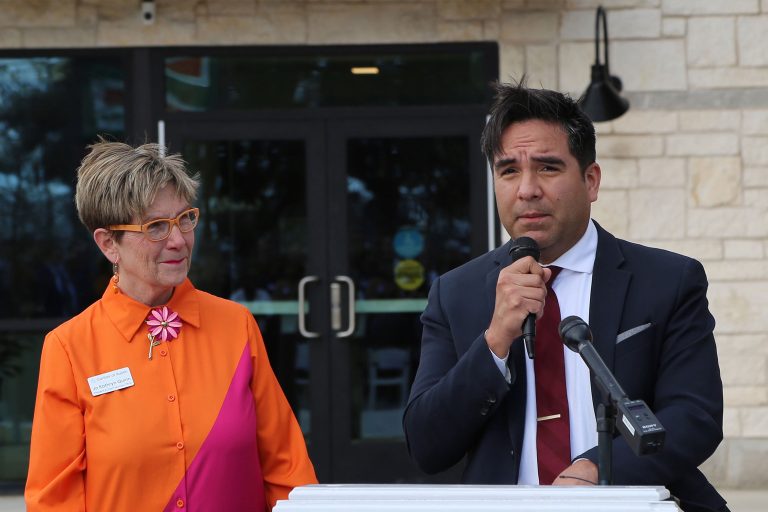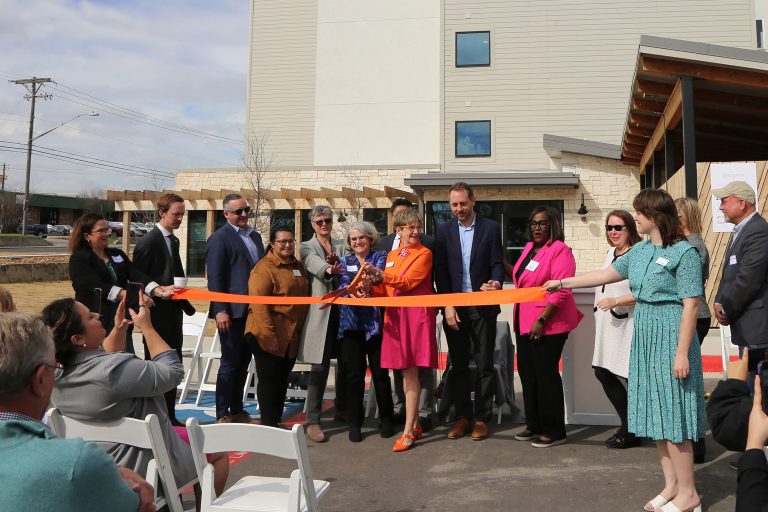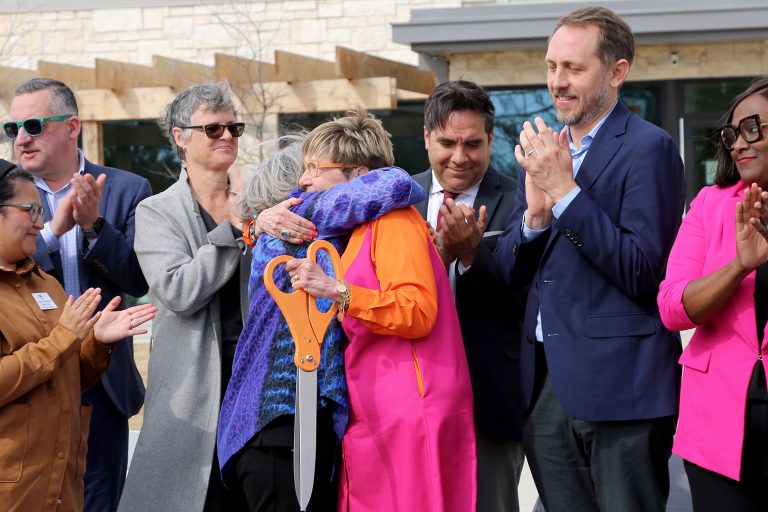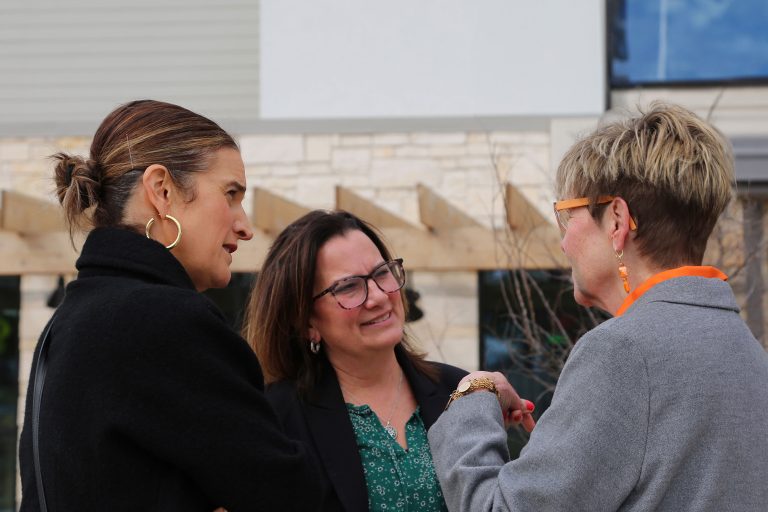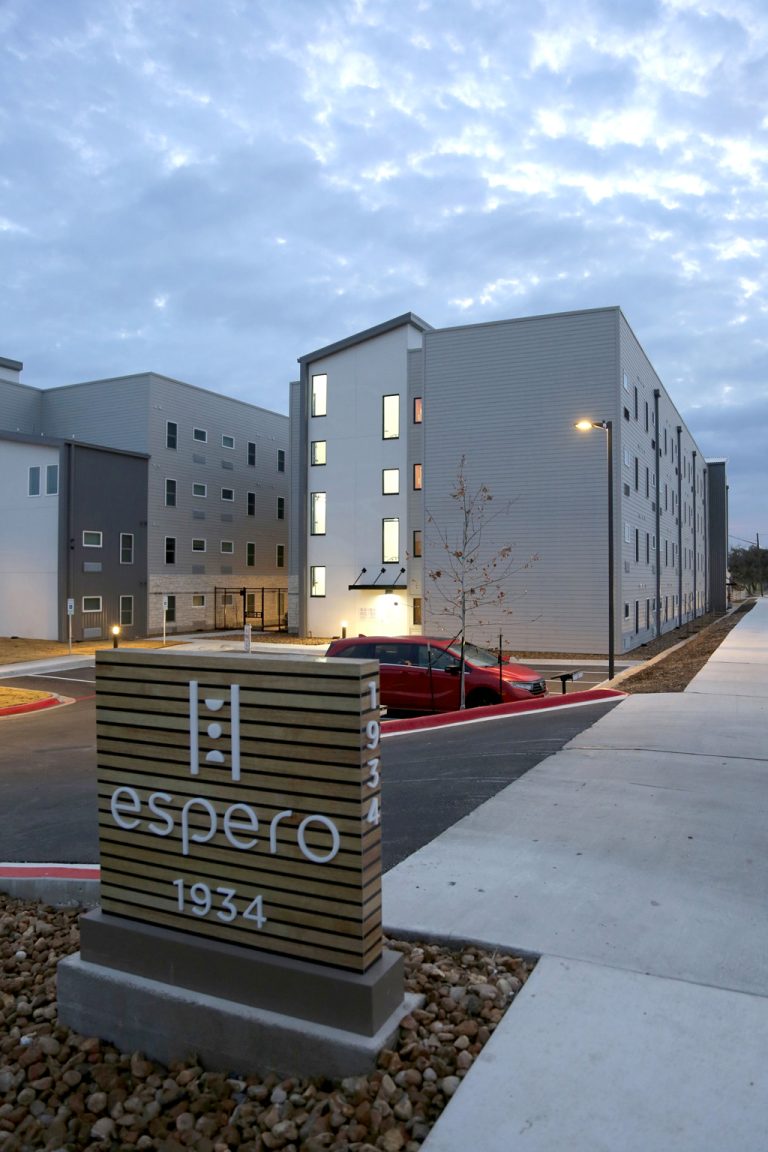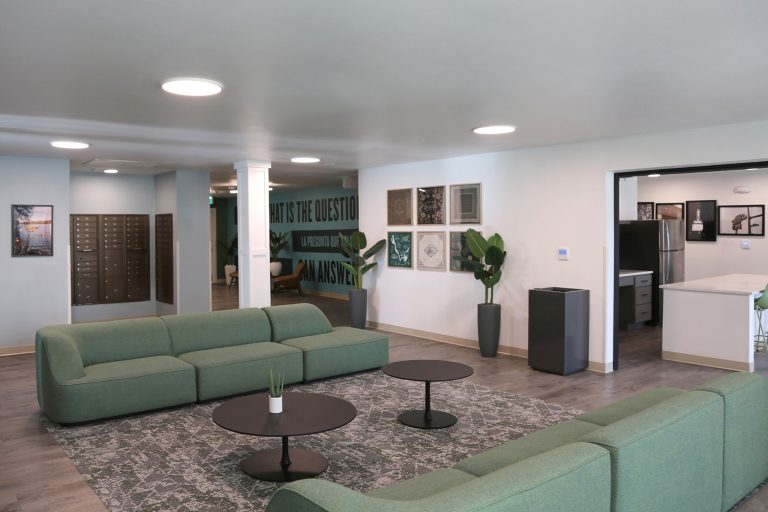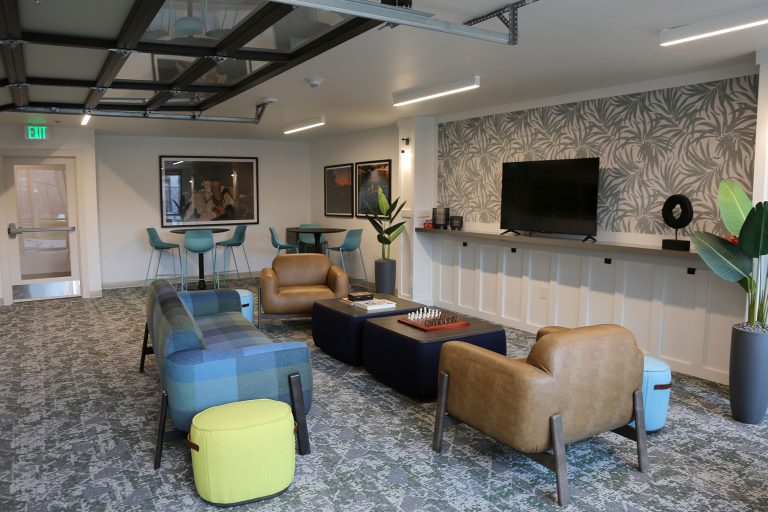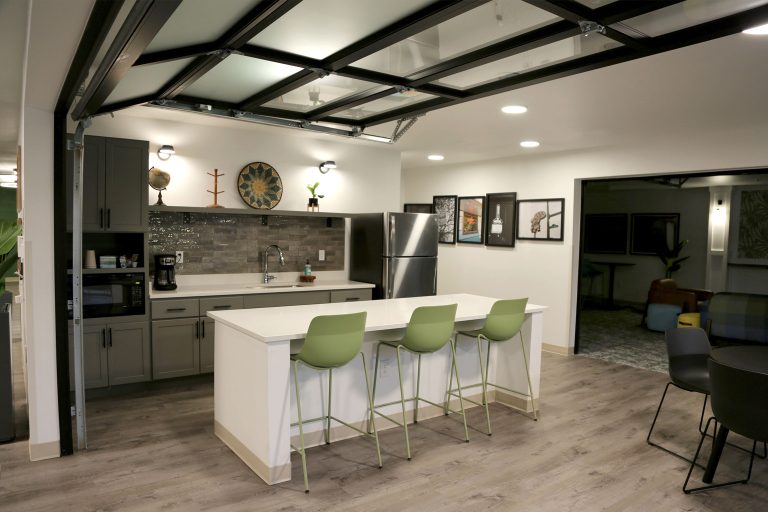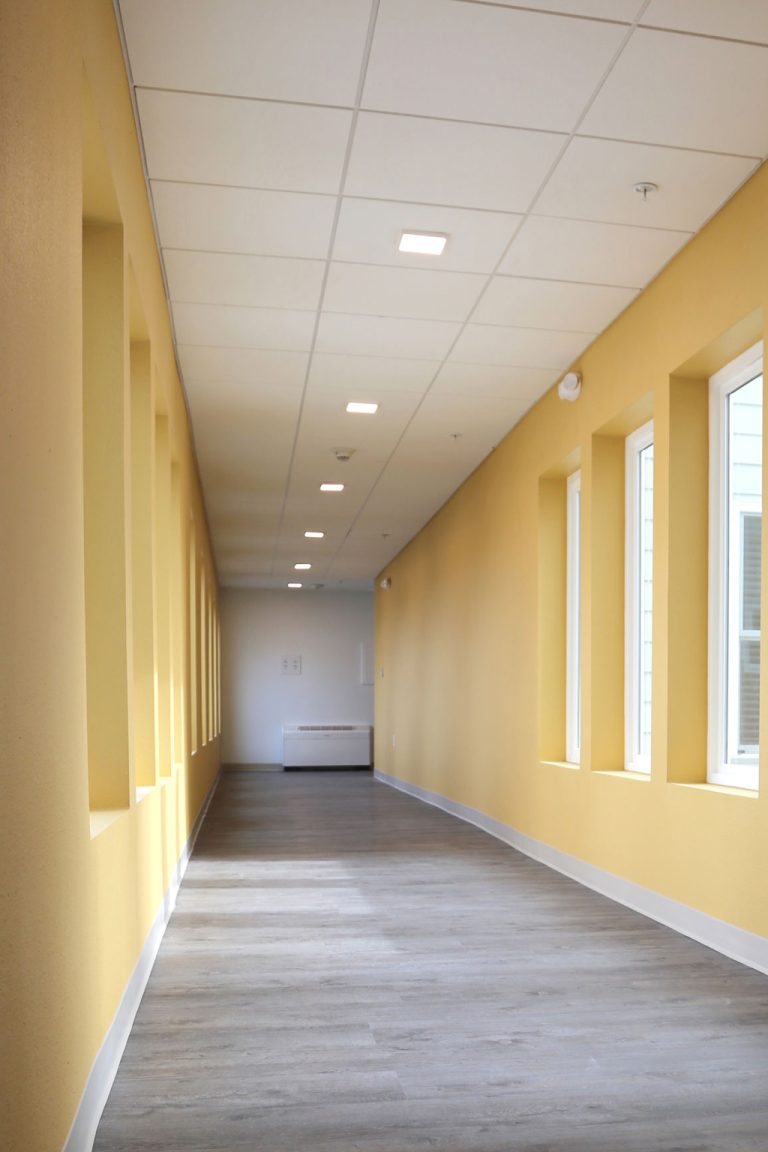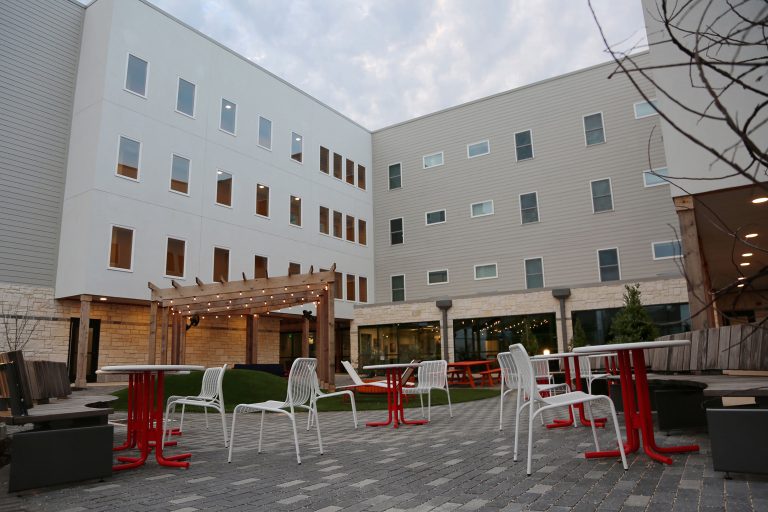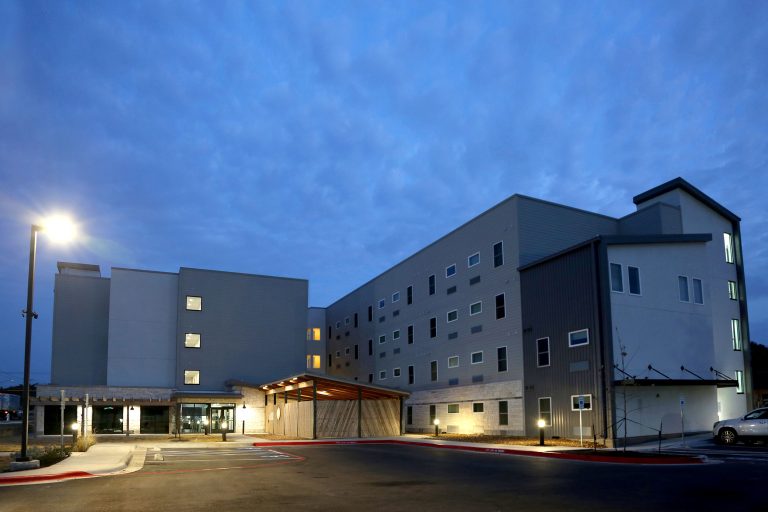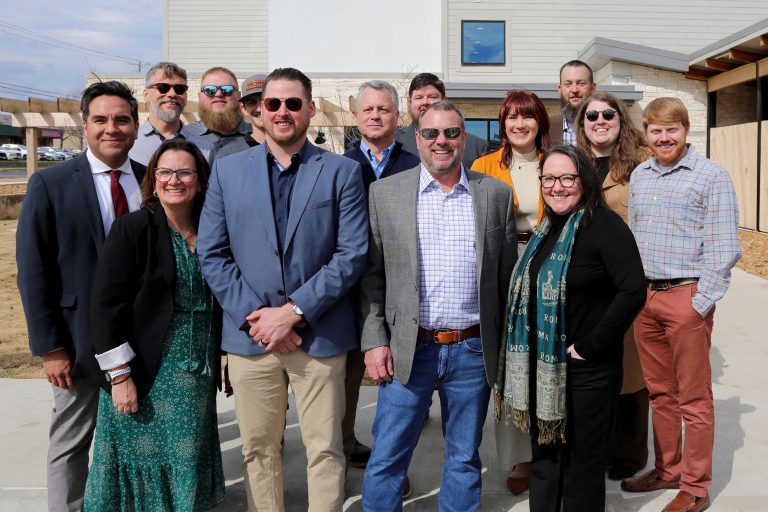Though quite a blustery morning—it was simply the winds of change blowing in favor of the greater good.
On February 7th, development partners, state- and locally-elected officials, supporters and residents gathered in front of 1934 Rutland Drive to officially cut the ribbon for Espero Rutland, the brand-new development that delivers 171 units of permanent supportive housing (PSH) for Austin, TX.
The sun added to the already positive mood for the more than 150 people in attendance celebrating this monumental community. Espero is significant as the first fully PSH-dedicated development for Austin—but it’s also one of three that are being developed for the city through a partnership between the Vecino Group, Caritas of Austin and the City of Austin/Austin Housing Finance Corporation (AHFC).
“I have lived in the city of Austin for nearly 40 years. I feel fortunate to live in this city, and I feel fortunate to work with so many people who are dedicated to keeping Austin affordable” said Valentin DeLeon, Vecino Group Director of Development.
Espero, “I hope” in Spanish, is a four-story building with 171 efficiency apartments with a kitchen and bathroom, indoor and outdoor amenities, and on-site supportive services for residents exiting homelessness. Amenity areas were intentionally designed to meet resident needs by providing plenty of open areas and space—in particular Espero’s furnished outdoor courtyard. On-site services are provided by Caritas of Austin will include personalized support in housing, education, employment, and connection to mental and physical health services. Case managers will work alongside peer support specialists who have experienced homelessness, PTSD, substance use, or other shared experiences to provide an additional layer of support. Residents will have 24/7 access to on-site community access and support.
After remarks, the ribbon was cut and tours commenced so those gathered could experience Espero’s property management and services offices, community amenity areas and a sample apartment.
“It is really a blessing to be able to gather and celebrate something like Espero, and all of the people and groups it took to create,” said Heather Bradley-Geary, Director of Supportive Housing for Vecino Group. “We’re so thankful to work with Cartias, AHFC and everyone—this is what true community-partnership looks like. This development will literally save the lives of Austinites.”
Espero was funded through various sources, including $17 million in Private Activity Bonds issued by AHFC, an $11.4 million permanent loan from Citi, $11 million in 4% LIHTC equity syndicated by Boston Financial, $3 million in TDHCA debt financing through the Multifamily Direct Loan (MFDL) program, $750,000 from the Federal Home Loan Bank of Dallas, and finally, $7.5 million in AHFC debt financing through the Rental Housing Development Assistance (RHDA) program. Both the City and the Housing Authority of the City of Austin dedicated project-based vouchers to support the facility’s operation.
The development includes 101 housing vouchers dedicated to the property, trauma-informed design, and on-site supportive services provided by Caritas of Austin.
The Housing Authority of the City of Austin provided 50 project-based vouchers, with a total value of $17 million over the course of 20 years. This support was the direct result of the AHFC both re-examining and updating their own policy in order to better serve the community.
“Affordable housing is not an easy problem to solve, it takes a lot of hard work from a lot of dedicated stakeholders, and it needs champions.” said DeLeon.
Prior to cutting the ribbon, Caritas of Austin CEO Jo Kathryn Quinn closed with:“Housing Austin’s most vulnerable is admittedly not rocket science, but it is hard and complex work in many respects. Caritas is doing this because it is hard. Caritas is doing this so our currently unhoused neighbors can one day call their loved ones and tell them ‘I have a place. I don’t have to sleep under the bridge anymore.’
Espero…HOPE!”
